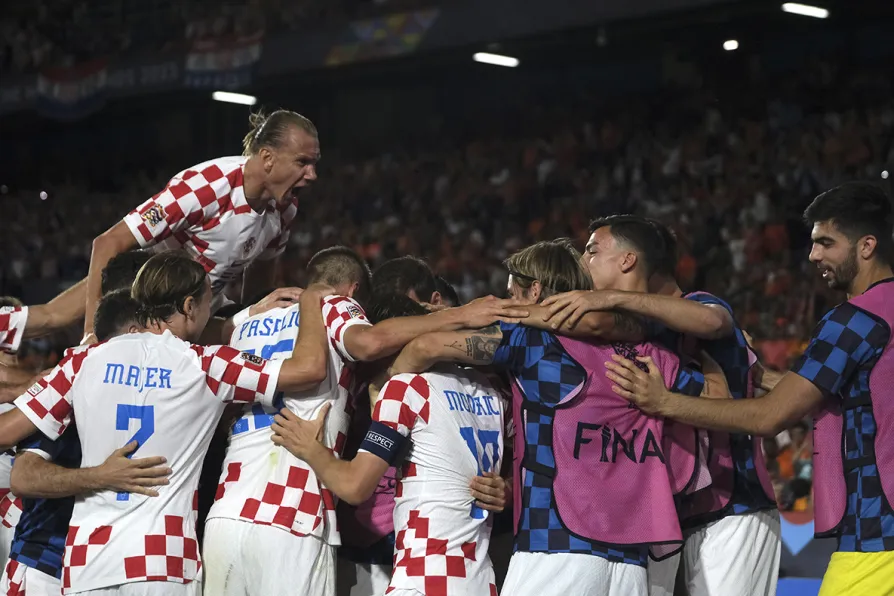
 Croatia players celebrate a goal from their teammate Luka Modric after scoring his side's fourth goal against Netherlands during the Nations League semifinal soccer match between the Netherlands and Croatia at De Kuip stadium in Rotterdam, Netherlands, Wednesday, June 14, 2023
Croatia players celebrate a goal from their teammate Luka Modric after scoring his side's fourth goal against Netherlands during the Nations League semifinal soccer match between the Netherlands and Croatia at De Kuip stadium in Rotterdam, Netherlands, Wednesday, June 14, 2023
HIDDEN within a raft of Euro 2024 qualifiers this weekend and into next week lies the final of the Uefa Nations League, which takes place tomorrow evening between Croatia and Spain.
Just when football fans thought the season had ended with last weekend’s Champions League final, many of the players that featured in that season, and indeed in that final itself, are back on the pitch.
A season that paused for an unusually placed World Cup in November and December, but hasn’t paused for breath, continues.

Forward’s rise as the tournament’s leading scorer reflects a journey shaped by heritage and belief as Morocco reach the final, writes JAMES NALTON

As football grapples with overloaded calendars and commercial pressure, the Mariners’ triumph reminds us why the game’s soul lives far from the spotlight, writes JAMES NALTON












